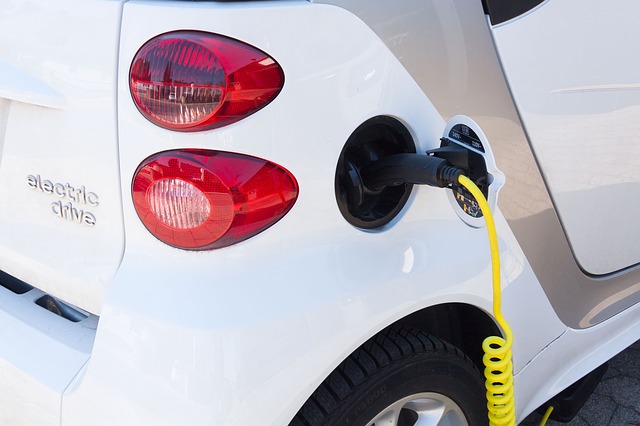Help keep up the Climate Change Momentum
Climate Change: The Week That Was for 27 August 2015
Can you find positive ways to help, no matter how small?
Barack Obama goes big; Lord Stern goes big; Brazil and Germany go big; Professor Tim Flannery goes big, Citibank goes big on the cost of inaction; Wind is big - everyone has gone big on climate change this week - even the little old Australian Capital Territory!
A weekly review of climate change politics, policy, innovation and science from Climate Reality Leader Andrew Woodward (@climatecomm, www.climatecommunication.net, This email address is being protected from spambots. You need JavaScript enabled to view it.)
It was a week of big statements on climate change - Barack Obama, Lord Stern, Brazil, Germany, Professor Tim Flannery, the ACT Chief Minister, Citibank and more. Everyone went big. Even Tony Abbot went big - telling big porkies on the economic impact of targets! Here’s some small coverage of the big things things week.
Politico reported President Barack Obama wielded his campaign slogan - Yes We Can - to hail the green energy revolution — and to bash the critics who he said were desperately clinging to the past as a renewable energy future approaches. “Folks whose interests or ideologies run counter to where we need to go, we’ve got to be able to politely but firmly say we’re moving forward,” Obama told about 1,000 supporters at an energy summit. “It’s a debate between those who say, ‘No we can’t’ and those who say, ‘Yes we can.’” Monday’s speech kicked off a two-week global warming messaging sprint by Obama that will take him from the Las Vegas event to New Orleans on Thursday for a Hurricane Katrina commemoration tour to a glacier in north Alaska next week. In conjunction, the White House announced a series of clean energy policies meant to increase the energy efficiency of homes and make rooftop solar installations accessible without a huge outlay of money. Climate Central reports the Obama administration, as part of its Clean Power Plan, has highlighted energy efficiency as one of the ways states can reduce their reliance on high carbon-emitting sources of electricity.
As for the Paris meeting, the EU has called for urgency as discussions are ‘seriously lagging’ and must be accelerated to seal a meaningful global emissions pact at Paris summit. The Guardian reports Miguel Arias Cañete, the EU’s climate commissioner, saying the 85-page draft agreement currently being poured over by diplomats still contains far too many bracketed options that need to be rapidly narrowed. “The window of opportunity... is closing fast.” Adding to the urgency is Nicholas Stern saying countries must recognise that tackling climate change does not mean sacrificing economic growth and development. Speaking at an event organised by the French Government, Professor Lord Stern, who is Chair of the Grantham Research Institute on Climate Change and the Environment at London School of Economics and Political Science and President of the British Academy, pointed out that, since the last attempt at a comprehensive global agreement in Copenhagen in 2009, “there is now much greater understanding of how economic growth and climate responsibility can come together and, indeed, how their complementarity can help drive both forward”. In some good news ahead of the Paris meeting, Germany and Brazil have joined forces on climate change action. Reuters reports the to countries committed themselves to a joint stance on climate change, putting the largest economies in Europe and Latin America on the same page ahead of global climate talks. "As the world's third largest greenhouse gas emitter, Brazilian support is crucial if the world is going to call time on the age of fossil fuels in Paris," said Iain Keith, of the Avaaz campaign network.
Meanwhile in Australia, it is more of the same. The Sydney Morning Herald reports the Abbott government stating Australia remains on track to lower greenhouse gas emissions even though total pollution edged higher in the March quarter compared with a year earlier. Hugh Saddler, principal consultant with energy consultancy Pitt & Sherry, said quarterly figures masked longer-term trends and were particularly low in the first three months of 2015 because a mild summer curbed power demand. "These figures clearly show a disturbing increase in Australia's emissions over the past year,” he told the SMH. Staying with the Australian government, the Guardian reports that government modelling shows the Prime Minister was wrong on the costs of tougher climate targets, government modelling shows. “PM’s claim of ‘massive and unmanageable costs’ are laid bare by figures showing that a 45% emissions target would cut GDP by a maximum of just 0.7%. The Abbott government has released its own economic modelling of long-term greenhouse gas reduction targets, confirming that the prime minister’s assertions about the costs of more ambitious targets have been incorrect and overstated. He cited the government’s then unreleased modelling to claim its own plan would impose a far lower economic burden, shaving just 0.2% and 0.4% from Australian GDP in 2030, but did not answer questions about what his modelling had concluded about the cost of deeper cuts. But when the modelling was finally released by the government on Friday it confirmed exclusive reports in Guardian Australia that it had found a 35% target would cut only 0.3% to 0.5% from GDP in 2030 and a 45% target would cut between 0.5% and 0.7%,”
There was some positive news join Australia this week. The Canberra Times reported on a pledge by ACT Chief Minister Andrew Barr for the territory to be 100 per cent on renewables by 2025. The ACT’s current target is 90 per cent renewables by 2020 and to get there, it is buying power from five or six wind farms, three solar farms within the territory borders, and a big-dish-style solar project whose details have yet to be settled. Mr Barr said the 100 per cent target is achievable, putting the ACT at the global forefront in its response to climate change. Newcastle, Australia’s home of coal, has, believe it or not, according to the Sydney Morning Herald, has joined fossil fuel divestment push. The city has joined the global fossil fuels divestment push after the city's council voted to exit holdings in the big four banks if they continue to fund fossil fuels projects. Still in Australia, Origin says big solar will dominate the large-scale renewable energy market. According to Renew Economy, the biggest energy retailer in the country says that large-scale solar plants will quickly overtake wind energy, as the most cost competitive renewable energy technology, and will likely dominate the new build required to meet the reduced large-scale renewable energy target. “But large-scale solar – little of which has been built in Australia to date without additional government grants – is looking more attractive, both in terms of costs and because solar projects can be built more quickly, from planning to construction, than wind farms,” said Renew Economy.
A report from Citigroup attracted a lot of attention this week as it said tackling climate change now could save $1.8 trillion. GreenBiz said the report indicated that while tackling climate change is expensive, it is not as expensive as doing nothing. The analysis, released late last week, is the latest in a series of high-profile research papers which outline the high economic cost of failing to tackle escalating climate risks. Renew Economy had a different take on the report saying the bank sees $100 trillion of stranded assets should the Paris climate conference succeed. “A new Citigroup report values the fossil fuel reserves that need to be left in the ground if the world is to meet its targets of trying to limit global warming to 2°C – a target that, according to a new Climate Council report, is actually a lot less “safe” for humankind than the science thought it was just 10 years ago.” In other research, the United Nations reports wind energy is on the rise and driving growth. Analysis shows that considerable wind energy capacity will be added this year notably in Brazil, Canada, Mexico and the United States. The European offshore industry has already enjoyed strong growth in the first half of 2015. The largest markets globally are currently China, the US and Germany - three major economies with policies that are reaping significant clean energy rewards.
In science this week, the Climate Council reports, the climate system changing more rapidly than expected with larger and more damaging impacts paints a stark picture of the urgent need for action. Climate Change 2015: Growing Risks, Critical Choices provides the most up-to-date, comprehensive synthesis of climate science in Australia and exposes the extent of the dramatic changes in the climate system worldwide. The Council's professor Will Steffen explained it in more detail on ABC Radio AM. The US Government’s meteorological agency, NOAA, reported July was Earth's hottest month on record. The BBC carried the story that July was the hottest month on Earth since records began, averaging 16.6 C (61.9 F), according to US scientists. That is 0.08 degrees higher than the previous record, set in July 1998 - a significant margin in weather records. Scientists at NOAA say in a report that they expect 2015 to be the hottest year on record. Finally, The UK Telegraph reports coral reefs are 'likely to disappear from the Earth' despite the climate change talks. “Coral reefs, as they existed half a century ago, will likely disappear from Earth even if climate change talks in December are "wildly successful", a distinguished professor and marine ecologist has warned. The future of the planet’s coral reefs is looking bleaker than ever, Professor Peter F Sale, University of Windsor in Canada, said, as he presented his analysis at the largest annual geochemistry conference worldwide this week. "This is now serious," he added. "I find it very unlikely that coral reefs as I knew them in the mid-1960s will still be found anywhere on this planet by midcentury."




























